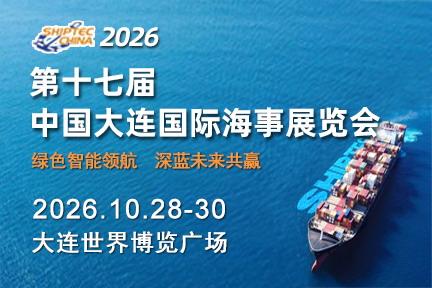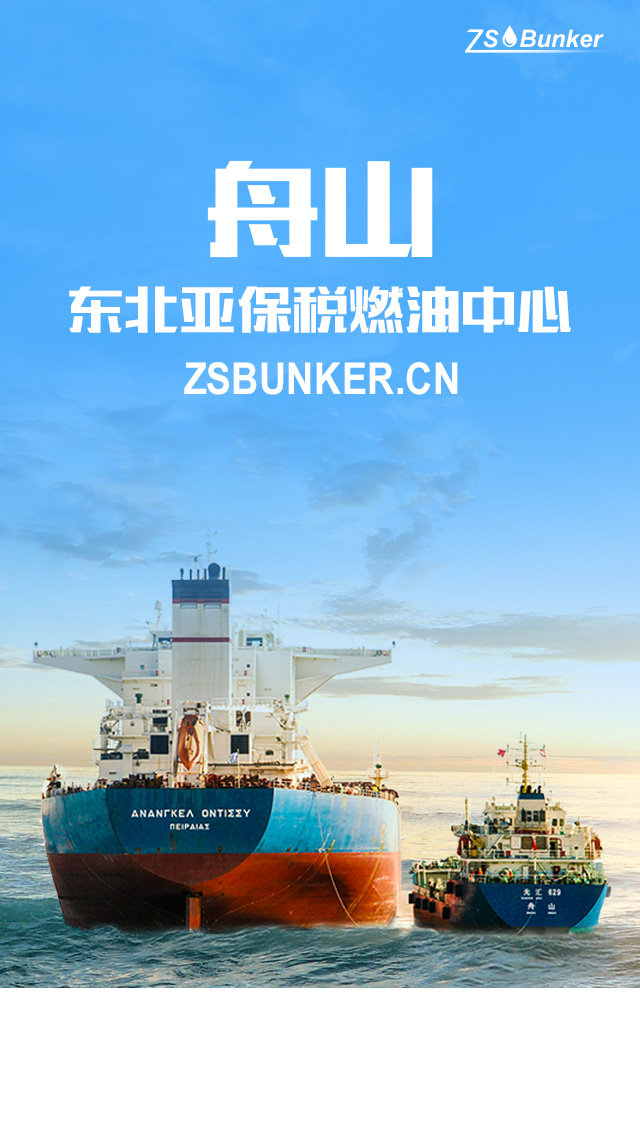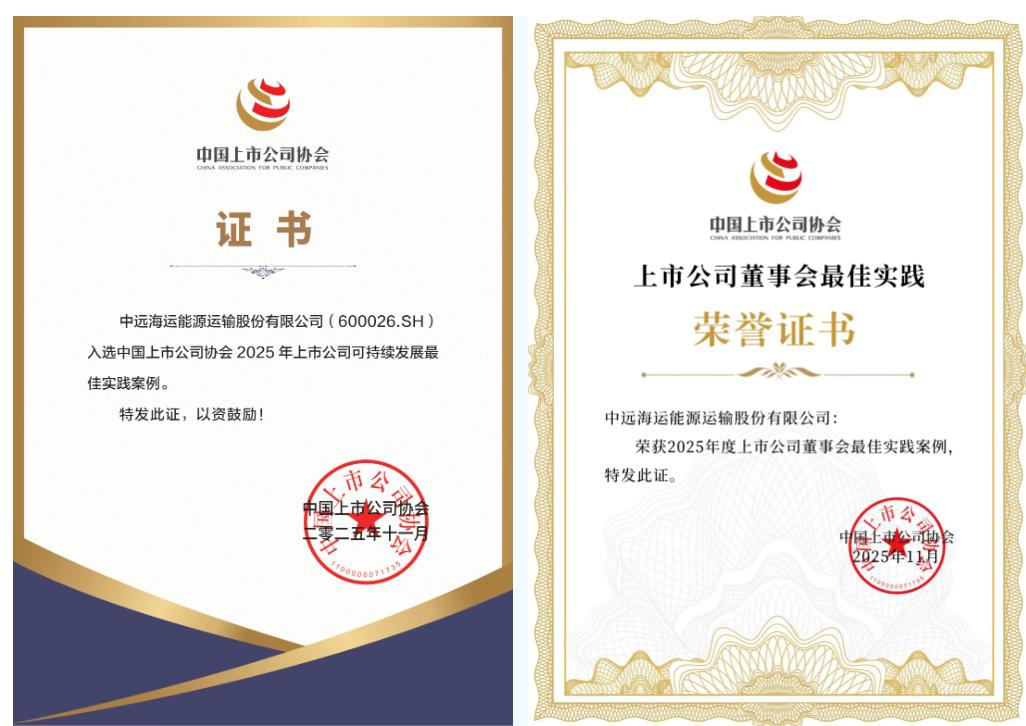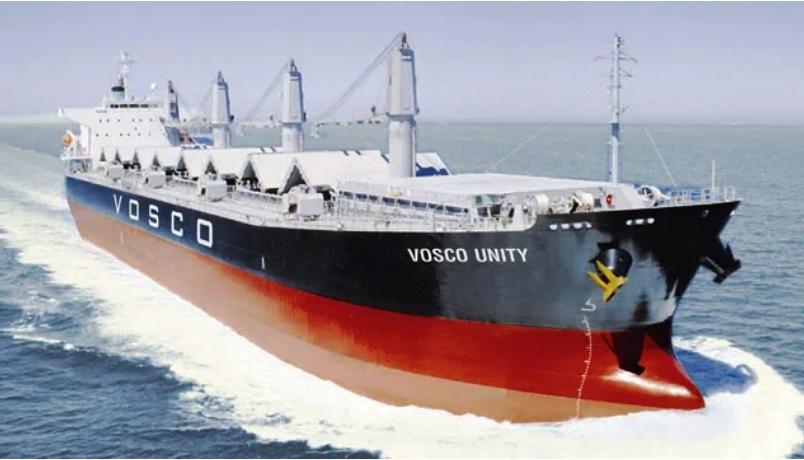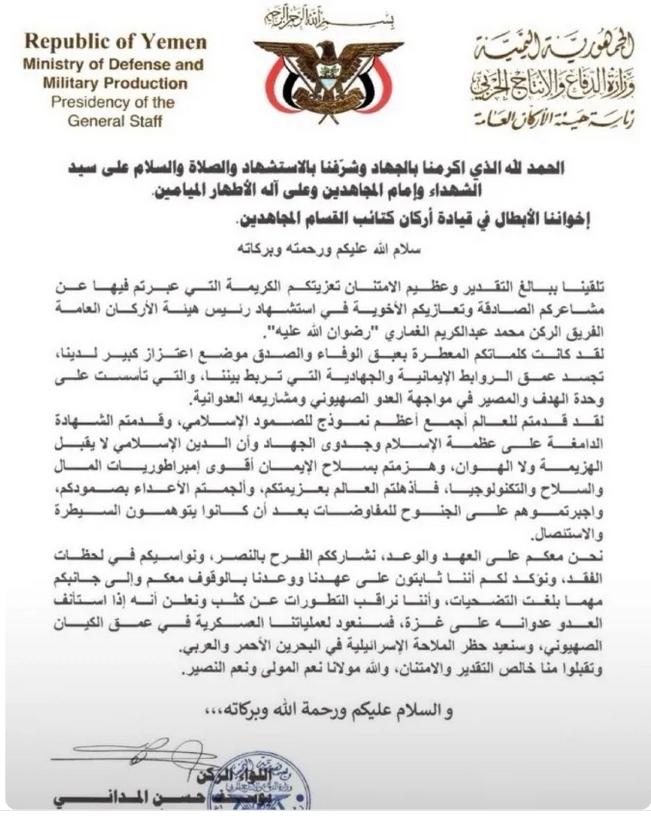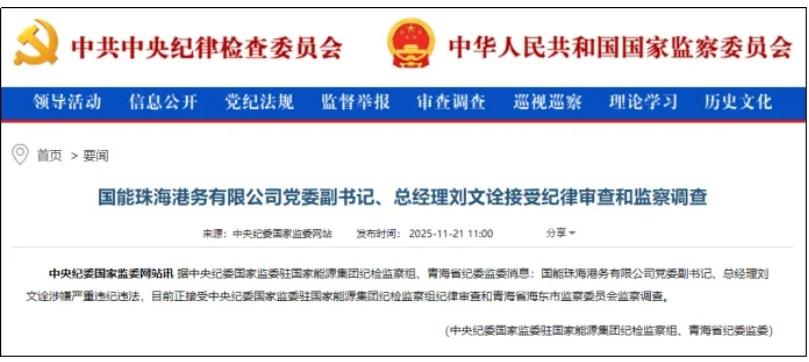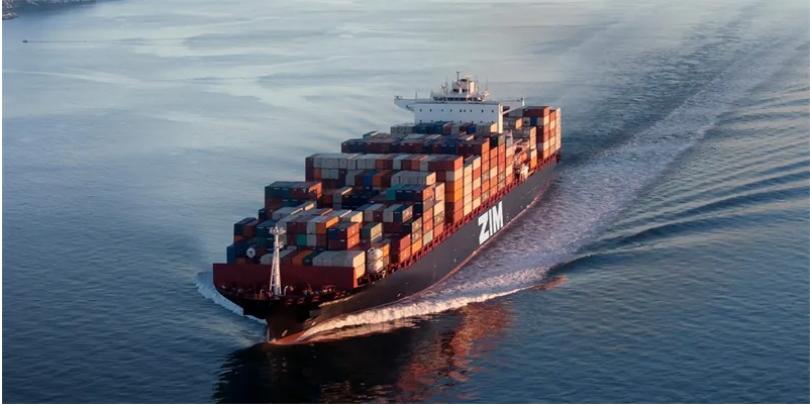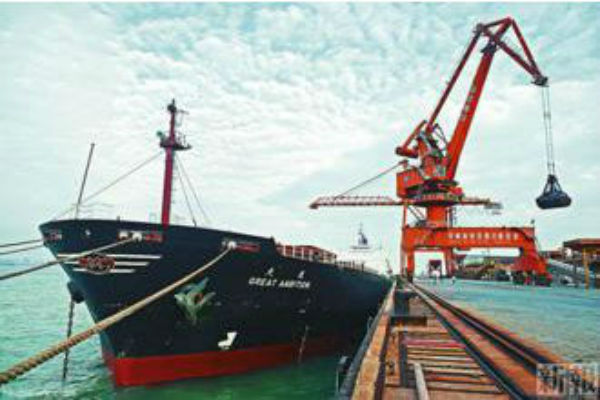
【摘要】针对现实中碰到各种各样涉及到合同停租事项,本文列举近年来不同的伦敦仲裁判例,简要分析该NYPE46合同格式中15条停租条款在实务中的运用及解释的基本原则。
【关键词】合同、off hire条款 、停租、实际损失
停租(off hire)是定期租船合同(TC/TCT)中重要内容之一,定期租船合同下很多争议也都与该停租条款有关;近期碰到一案例就围绕该停租条款发生的。
案件经过如下:
A轮以带有附加条款的NPYE46合同格式执行一个南美装粮到欧洲卸的TCT 航次,租家最终安排到英国某港卸货。11月20日1415左右引水上船,1445左右船长上驾驶台,大雾影响开航。在1500左右引水发现雷达异常报警,驾驶员上罗经甲板修复,但关机后无法重启。随后引水决定离船,船于1815左右卸完货。代理取消拖轮及重新安排离港时间,11月22日1530左右顺利离港。
租家声称从20日1815到22日1530期间由于雷达损坏造成延误,给租家造成损失,主张这段时间内船舶应该停租;但船东不同意,声称延误是因为大雾造成的。
在分析该案例之前,先来看看最近的几个以NYPE合同下的伦敦仲裁判例,再来判断租家到底是否有权利主张停租。
一、LondonArbitration 11/02 (2002) 591 LMLN 3 案中,船于1月9日抵达卸港,但租家未支付租金,船东拒绝进港卸货;基于租家事实上毁约,船东15日发3天的撤船通知,但租家仍未按船东要求支付租金,船东撤船。租家抗辩说从9日开始停租,但被法官驳回。
In thatsituation, the Owners were entitled to refuse to discharge and, if necessary, refuseto enter the first discharge port in order to avoid being forced to discharge.
此案还涉及到提单签发的问题,不在此讨论。
二、LondonArbitration 14/02 (2002) 594 LMLN 3 案中,船于11月22日1900递交交船通知及NOR,23日0120抵达内锚地。1000验舱,5个中的2个未能通过验舱;1716因为船东债务方面的原因船舶被扣(arrest);24日1245另外两个舱通过验舱;12月3日0904扣押解除。4日1205起锚靠泊,1345靠好,1425开始装货。
因为船舶被扣,租家主张从11月23日1716开始到12月3日0904期间停租。法官认为,虽然因为扣押导致full working of vessel has been prevented,但租家未能提供由于船舶被扣有实际损失net of time lost,船舶可以提早靠泊等证据,法官驳回租家抗辩,在被扣期间,租家无权停租。部分陈词如下:
The problem for the charterers was that they had no hard evidence tosupport their theory. Had they wished to make good that point, theyshould at least have secured a statement from the sub-charterers, or from theelevator’s operators, even from the port agents, to the effect that thevessel’s arrest entailed her losing her turn under the elevators.
However,if the vessel had been able to load earlier at the elevator but was unable todo so because of being under arrest, then the tribunal would have expectedlaytime to haven been interrupted. That helpful evidence was available to thecharterers, who had chosen not to produce it.
Thus,neither side had produced conclusive evidence as to whether or not the arrestof the vessel had interfered with her loading schedule.
The tribunal wouldaccept that the wording of Rider Clause 53 did not refer (as did clause 15) tothe "full working of the vessel" being prevented. However, there wasno doubt that there was a reference in Rider Clause 53 to "all timelost" by reason of arrest being "treated as off-hire". But thatrequired the charterers being able to show that time had been lost. If theservice required of the vessel was simply to wait in a queue for the elevator,arrest or not, no time was lost.
Thecharterers had said that whilst under arrest the vessel was unable to performthe service immediately required of her, which was to be available to berth atany time. However, that argument would be rejected. Whilst it was true that thearrest of the vessel might have had an influence on the sub-charterers'berthing schedule, the burden of proof was on the charterers, and they had beenunable to discharge that burden.
Had it beenotherwise, time would have been "lost" and expenses no doubtincurred, all of which would have fallen under the provisions of Rider Clause53 which protected the charterers against such a loss. The clause was notdesigned to protect the charterers from losses they had not incurred.
Accordingly, the vessel was not off-hire due to herarrest.
同时因为未能通过验舱,租家主张从22日1900到23日1000也应该停租,但被法官驳回。
However, there wasnothing in the charterparty to suggest that they were entitled to claimoff-hire for the period between delivery and the time of the first holdinspection, and the clear wording of Rider Clause 40 implied to the contrary.
Accordingly thecharterers' counterclaim would be rejected.
三、LondonArbitration 10/07 (2007) 719 LMLN 1 案中,船舶在锚地等泊期间进行维修工作,租家主张此维修(2月24日从0815到1819)期间应该停租,但由于租家没有实际的时间损失(net lossof time ) ,租家该主张被法官驳回。
Held , that the charterers could have no complaint inrelation to the position where the ship was at the anchorage. They and/or thereceivers knew where she was and made no request that she shift. There was noloss of time, for the reasons given by the owners. The repairs caused no delay:even if they had not taken place, discharging would not have started anysooner. Accordingly, the off-hire claim had to fail, as did the charterers’claims for related extra expenses.
四、London Arbitration27/07 (2007) 733 LMLN 3 案中,船从印度Mundra装小麦到也门卸,11月10日抵达卸港Saleef。由于也门卫生当局认为有货损,拒绝船舶靠泊卸货,租家主张从11日2010开始到22日0600(声称卫生当局禁止),23日0000到29日1930(声称船长拒绝检验员提取货样),12月2日1700到2045(声称船长上岸看病延误开航)三个期间船舶应该停租。
考虑到事实上短短的6天航行时间并不能造成货损,法官认为货损在装港就已经发生的,而船长并不被要求对此,装载租家的货物负有责任,因此第一个事件卫生当局拒绝靠泊卸货期间不可以停租;第二个事件因为只是听从租家的航次指示,船舶方面没有过错,也不可以停租;第三个事件船长上岸就医并没有给租家造成实际的时间损失,租家也不可以停租。相关陈词如下:
Held , that it washighly improbable that the alleged cargo damage occurred during the voyage,both because of the nature of the damage complained of, and because of theduration of the voyage – 6 days only. It was almost totally inconceivable thatthe condition of the wheat should have deteriorated, and was out of thequestion that any ship-caused infestation could have occurred, within thatshort timespan. Moreover, the charterers themselves considered that the damageexisted on loading. The charterers’ argument that the master should havestopped loading and claused the bills of lading would be rejected. To suggestthat the master should have known that the cargo was in some way defective wasrather like suggesting that a master should know whether a grain cargo wasgenetically modified or not: the mere fact that he might have seen dark orblack grains, and even possibly dust, was not enough to alert him to therebeing any defect in the cargo. He was entitled to think that if that was whatthe charterers wanted to load, that was their business. A master could not beexpected, when dealing with a bulk cargo of that kind, to have any kind ofexpertise in relation to the quality or condition of the cargo. Still less didhe owe any duty to charterers to intervene and stop loading, or even to alertthem. It was up to charterers to load what they wanted and to ensure that whatthey wanted was loaded.
Had the mate’sreceipts, when tendered, or the charterers’ voyage instructions, made referenceto – for example –“milling wheat free of black or darkened grains and dust”,the position might have been different; but that was not the case. The simple descriptionof “milling wheat” could only mean to a ship’s master that the cargo was wheatwhich was for milling – no more than that – and that cargo complied with thatdescription when it was tendered for loading. It was therefore clear,regardless of where the burden of proof lay, that the condition of the cargo ondischarge was not materially different from its condition on loading, and thatthere was no fault on the master’s or owners’ part in that respect. Theconsequences resulted directly from the fact that the charterers loaded thatparticular cargo, and they had to bear those consequences.
Accordingly, thecharterers’ counterclaim failed.
As a matter ofcommon sense it would be strange if charterers could put a ship off hirebecause of events which resulted from compliance with their orders without anyresponsibility on the ship’s part, as in the present case. Very clear wordswould be required to achieve such an outcome. Indeed, there was authority toprecisely that effect: The Laconian Confidence [1997] 1 Lloyd’s Rep 139 and TheRijn [1981] 2 Lloyd’s Rep 267. It was also highly debatable whether theefficiency of the ship as a ship was affected by what happened. She was fullycapable of giving discharge, which was what the charterers wanted, but the healthauthority refused to allow the cargo to come ashore. Accordingly, clause 15 didnot help the charterers.
Nor did thecharterers get any comfort from clause 39, for the simple reason that the shipwas never arrested. And clause 50 did not avail the charterers, because even ifdischarge was stopped as a result of government restrictions, those were notcaused by the ship: rather they were caused by compliance with the charterers’orders to load the cargo. Clause 56 was irrelevant because there was no detentionor threatened detention by port authorities. Even if there had been some suchdetention or threat, it could not have been said to have caused any loss oftime. Lastly, there was the underlying point that all the problems arose fromcompliance with the charterers’ orders to load the cargo and therefore, absentvery clear words, the charterers could not rely upon that in order to justifyputting the ship off hire.
Accordingly thecharterers’ claim to put the ship off hire during the first period failed.
As to the secondoff-hire period, the true reason for the delay during that period was not anyrefusal by the master to allow samples to be taken. Rather it was the fact thatthe health authority had to be present during discharge, but their representativesdid not work during the Eid holidays. The claim to put the ship off hirefailed.
As to the thirdoff-hire period, that claim also failed on the facts. The charterers’contention was that because the master was ashore, the ship could not bereadied for sailing and time was lost. The evidence showed, however, thatwhilst the master was ashore tugs arrived, the chief officer completedformalities and prepared to take the ship to anchorage, and that the masterboarded at anchorage five minutes after the tugs had been fastened and linessingled-up. There was plainly no loss of time and thus no off-hire case couldbe sustained.
Accordingly, theowners’ claim succeeded in full for $243,370.17 plus interest.
五、LondonArbitration 9/08 (2008) 748 LMLN 3 案中,船舶执行从中国装袋装大米到非洲卸的TCT航次,租期约70/90天。在其中一个卸港船舶被收货人扣押,此外船吊损坏,租家主张此期间船舶停租。因被扣押期间,船舶仍在等租家下个航次指示,及船吊损坏期间,都没有给租家造成实际的时间损失(net loss of time ),法官驳回租家主张,部分陈词如下:
Whether vesseloff-hire due to arrest at discharge port
The vessel wasarrested by the cargo receivers at one of the discharge ports. The charterers,relying on clause 59 of the charter, placed the vessel off-hire.
Held , that thecharterers had not produced evidence of voyage orders that were being thwartedbecause the vessel was unable to depart from the port during the period underarrest. The tribunal placed weight on the fact that although the charterersinstructed the master to sail after the vessel’s release they neverthelessordered him to remain outside the port limits for two further days waiting forinstructions regarding her next destination. On the evidence, and on thebalance of probabilities, no time was actually lost by the charterers duringthe period of arrest. It followed that the vessel was not off-hire.
Whether vesseloff-hire due to crane breakdowns
The vessel’s cranessuffered a series of breakdowns at the discharge ports, during which time theyceased to be at the disposal of the charterers’ stevedores. The charterers,invoking clause 21, placed the vessel off-hire at various times at a ratio of¼th of the total of the periods that the breakdowns lasted.
The owners said thatclause 21, like clause 59, was a “net loss of time” provision and submittedthat since no time was lost to the charterers, the vessel was not off-hire.
The charterers maintainedtheir entitlement to deduct hire pro-rata, contending that clause 21 was to beread in conjunction with clause 15 and that the breakdowns did, in fact, slowdischarging operations down and cause them additional expense.
Held , that on theevidence no time had actually been lost to the charterers as a result of thecrane breakdowns. Either the vessel was otherwise occupied during the periodsof incapacity or work in the holds affected by the defective cranes wascompleted well before the work in the holds that were unaffected by the failureof the cranes. Moreover, the specific provisions of clause 21 prevailed overthose of clause 15. Accordingly, the vessel was not off-hire.
六、London Arbitration (2010) 798 LMLN 1, “TheSaldanha”案中,船舶在过亚丁湾期间,于2009年2月22日被索马里海盗劫持,4月25日被释放,5月2日回到和被劫持位置等效地点(equivalent position)。租家主张被海盗劫持期间从2月22日到5月2日,船舶应该停租。鉴于海盗劫持不能归为共同海损事故所引起的扣押,也不算是人员的不足和/或过错,也不能归类于15条停租条款中的 “Any other cause”,任何其他(阻止船舶完全运作)的原因,法官Gross驳回租家诉求,同时认为海盗劫持是个classis example of a totally extraneous cause,非常典型的完全是外部原因造成的例子。综上原因,在海盗劫持期间租家无权停租。以下为部分陈词:
The arbitratorsdetermined a number of preliminary issues arising under clause 15 and underother clauses of the charterparty. As to clause 15, the tribunal held that thedetention by pirates did not have the effect of putting the vessel off-hireunder that clause. The tribunal also held that the vessel was not off-hireunder clause 39 and that the war risk and insurance provisions of the charterpartydid not preclude the owners from claiming hire in respect of periods duringwhich the vessel was under the control of pirates.
The charterersappealed to the High Court in relation to the tribunal’s determination that thevessel was not off-hire under clause 15. There was no appeal in relation to thetribunal’s other determinations.
The chartererssubmitted that they had succeeded in bringing themselves within one or more ofthe following three causes contained in clause 15 of the charterparty, namely(1) “Detention by average accidents to ship or cargo”, (2) “Default and/ordeficiency of men”, and (3) “Any other cause”.
Held , that as to(1) there was no “Detention by average accidents to ship or cargo”. In TheMareva AS [1977] 1 Lloyd’s Rep 368, 381 Kerr J said that “average accident”meant “an accident which causes damage”. On any view, the piracy incident didnot result in damage to the vessel. Kerr J’s observation had been accepted ascorrect for 30 years, and as settling the issue of the meaning of “averageaccident” in the NYPE form. Innumerable charterparties had been made on thatbasis. The Court would only differ from the view expressed by Kerr J ifpersuaded that it was clearly wrong. To the contrary, Kerr J’s view seemedright. Moreover, the incident could not properly be described as an “accident”.Furthermore, “average”, in the present context was not simply to be equatedwith a peril ordinarily covered by marine insurance. At the least, in thepresent context, damage to the ship was an essential ingredient for the wording“average accidents to ship” to apply.
As to (2) there wasno “Default and/or deficiency of men”. The tribunal had been asked to determinewhether, on the (disputed) factual assumption that the officers and crew hadfailed to take recognised anti-piracy precautions, before and during theattack, those failures would fall within the exception “default of men”. Thetribunal had further been asked to assume that that failure on the part of theofficers and crew was a significant cause of the loss of time resulting fromthe pirates taking over the vessel and consequent loss of full working of thevessel. The charterers had submitted that the natural meaning of “ default ofmen” included a failure to perform or a breach by the master and crew of theirduties. However, the context presented an insuperable obstacle to adopting thecharterers’ construction of “default of men”. In context, “default of men” inclause 15 had a narrower construction, and meant a refusal by officers or crewto perform all or part of their duties as owed to the shipowner and not thenegligent or inadvertent performance of those duties.
As to (3), theincident did not fall within the words “Any other cause”. The starting pointwas to underline that clause 15 contained the wording “ any other cause ”rather than the wording “any other cause whatsoever ”. That difference inwording was significant (see The Laconian Confidence [1997] 1 Lloyd’s Rep 139,150 – 151). The act of piracy was not eiusdem generis . It did not arise out ofthe condition or efficiency of the vessel, or the crew, or the cargo, or thetrading history, or any reasonable perception of such matters by outsidebodies. It was a truly extraneous cause. The effect of the bargain containedwithin clause 15, construed in its general context, was that the owners did nottake the risk of the full working of the vessel being prevented by anextraneous cause such as piracy. The charterers assumed that risk.
In conclusion, theseizure of a ship by external actors was a recognised peril; but no such perilwas covered by clause 15 of the charterparty. Moreover, and significantly,there was in the charterparty a “bespoke” clause dealing inter alia withseizures. Clause 40 of the charterparty provided as follows:
“Clause 40 –Seizure/Arrest/Requisition/Detention Should the Vessel be seized, arrested,requisitioned or detained during the currency of this Charter Party by anyauthority or at the suit of any person having or purporting to have a claimagainst or any interest in the Vessel, the Charterers’ liability to pay hireshall cease immediately from the time of her seizure, arrest, requisition ordetention and all time so lost shall be treated as off-hire until the time ofher release…”
Plainly, however,clause 40 did not extend to cover seizure by pirates. Perhaps that was thecharterers’ misfortune but it did not furnish justification for distorting themeaning of clause 15. Should parties be minded to treat seizures by pirates asan off-hire event under a time charterparty, they could do so straightforwardlyand most obviously by way of an express provision in a “seizures” or“detention” clause. Alternatively and at the very least, they could add theword “whatsoever” to the wording “any other cause”, although that route wouldnot give quite the same certainty.
The appeal would bedismissed.
七、London Arbitration 17/10 (2010) 805 LMLN 3(2)案中,租家安排到Novorossiysk装小麦,由于货舱有些油渍,在12月19日1620验舱不通过,检验员离船;1900船长通知代理油渍已经清理完毕,货舱备妥,要求安排检验员重新验舱,但检验员等到第二天11点才上船,直到1620最终通过验舱。考虑到停租条款是period off hire clause,不同于net loss of time clause,法官认为从19日1620到20日1130租家有权停租;但由于租家违反默示条款,未及时安排检验员上船,从1130到1620不可以停租。
On the particular facts of the present case, it wasreasonable for the surveyor not to return on board before 1100 the followingday. However, no explanation had been suggested to satisfy the tribunal that itwas proper for him not to pass the holds until 1620 that day. Doing the best itcould, the tribunal concluded that in all reason he should have passed theholds by no later than 1130 on 20 September.
Accordingly, to that extent the charterers were in breachof the implied term. The owners were entitled to damages for that breach, thedamages being measured by reference to the extent of off-hire to which thecharterers became entitled as a result of their breach. Accordingly, the ownerswere entitled to recover hire from 1130 to 1620 on 20 September 2007.
In the result, therefore, the charterers were entitled towithhold hire for a period of 19 hours 10 minutes between 1620 on 19 Septemberand 1130 on 20 September. The owners’ claim fell to be reduced accordingly, andsucceeded in the sum of $37,584.71, together with interest.
八、London Arbitration (2012) 857 LMLN 1 “The Pearl C”案中,船东把PearlC轮期租给租家,租期约9到12个月,租家主张船东违反合同第8条尽力速遣条款,然后依据合同第15条,主张停租;法官认为在决定减速航行中,引援default of Master, officers or crew词语适用恰当,判租家有权索赔此损失。
The owners’ appeal under section 69 would also bedismissed. The owners had submitted that the error of law made by the tribunalwas its failure to address section 12(1)(b) of the Act at all. That submissionwould be rejected. The tribunal had expressly addressed section 12(1)(b) andmade findings in respect thereof.
The tribunal had upheld the charterers’ performanceclaims (1) on the basis that the owners were in breach of clause 8 in that thevessel had failed to proceed with the utmost dispatch, alternatively (2) thatthe charterers were entitled to deduct the time lost due to slow steaming underthe first part of the off- hire clause, clause 15.
The owners submitted that the tribunal had made errors oflaw in coming to those conclusions. However, that submission would berejected. On a fair reading of the award, the tribunal had not made any errorsin their approach. Their findings of fact justified their conclusions inupholding the charterers’ performance claims.
九、London Arbitration11/13 (2013) 877 LMLN 4 案中,一灵便型船以Asbatime1981格式,执行一个从巴西Santos装糖的TCT航次。船于2012年5月8日在Santos交船,但随后验舱不通过。船员继续备舱,最终于10日下午通过验舱。租家向船东索赔损失,鉴于合同为net loss of time clause,法官驳回租家索赔主张。
其合同第91条描述如下:
“Vessel’s holds on delivery to be completely clean … andin every way ready and suitable to load charterers’ intended cargo(es). If thevessel is rejected at loading port(s) by charterers’/shippers’ surveyors orcompetent authorities, then the vessel to be off-hired from the time of failureuntil all holds pass re-inspection by them and any time lost and all expensescaused thereby to be borne by owners. This clause is without prejudice to[charterers’] rights under the charter party.”
Held, thatthe charterers’ claim for additional off-hire had to fail. As a matter ofconstruction, both clause 66 and clause 91 were “net loss of time” clauses, inthat they were very similar to clause 15 of the NYPE charter. The materialwords were “any time lost thereby”, which had the effect of converting clause15 from a period provision into a net loss of time provision (The Pythia [1982] 2 Lloyd’s Rep 160).If the charterers had been able to use the vessel while the holds or hatcheswere being worked on between 8 and 10 May, the vessel would have been on hire.
The charterers’ claim for damages also failed. Theirassertion that the vessel could have berthed on 8 May if she had passed theinitial inspections was based on conjecture rather than substantiated fact. Buteven if that assertion were correct, the owners were right in their contentionthat clauses 66 and 91 provided a complete code in respect of damages flowingfrom the relevant events; and under that code, the damages were clearlyrestricted to the period of the named off-hire event.
十、London Arbitration 24/16 (2016) 960 LMLN 2 案中,租约以带有附加条款的NPYE 46格式,执行一个TCT航次,租期约30天。船于3月9日1218抵达第一装港,但由于没有泊位,按排队预计3月13日左右靠泊。9日1230左右开始验舱,1345验舱不通过。船员继续备舱,最终于12日1145通过验舱。因为验舱不通过,导致船舶需重新排队,在验舱通过后,其中第4艘先行靠泊的船于17日2215先靠泊,最终该轮按排队于19日0105才靠泊装货。其中合同主要条款如下:
7. – Hold condition on arrival at 1st loadingport to be clean…and ready to receive charterers’ intended cargo, all respectssubject to the shippers surveyors’ inspection. If the vessel fails such survey,the vessel to be placed off-hire from time of the rejection until accepted inall holds, and any extra directly-related costs/expenses/time therefrom to befor Owners’ account.
租家依据该条款,主张从9日1245到12日1245共70个小时停租,并索赔额外的损失,从13日1600到17日2215共102.25小时。
法官认为该条款可分为三部分,(1)抵达时货舱清洁的保证性条款,(2)期间停租条款,及(3)额外的直接相关费用条款,判租家有权停租并索赔额外的损失。
Held, thatthe outcome of the arbitration depended on the proper construction of clause 7of the charterparty. The clause could be conveniently divided into three parts,namely: (1) the clean holds on arrival warranty; (2) the period off-hireclause; and (3) the additional “directly-related” costsprovision.
At the outset, the tribunal could not see any reason notto interpret each of those provisions in accordance with its wordings and togive effect to the meaning of those wordings.
As for the warranty, its wording was clear and the ownershad admitted their breach of it.
As for the period off-hire provision, its meaning wasalso clear, namely that the vessel was to be off-hire for the period commencingat the time she failed inspection and ending at the time she was accepted asclean. There was nothing unusual or unbusinesslike in such a provision; it setout how breach of the warranty was to be calculated in terms of hire, andavoided the need to investigate whether or not the charterers actually suffereda loss of time as a result of the cleaning.
As for the additional “directly-related” costs provision,that, too, was clear in its meaning and was uncontroversial from a commercialpoint of view. It meant that if, in consequence of the breach of warranty, thecharterers did indeed suffer loss “therefrom” in terms of costs and expenses ortime, then the owners were to be responsible for that loss – provided such losswas “directly-related” to the breach of warranty.
It was certainly possible that a breach of warranty ofthat type would give rise to delay in berthing. It would not always do so; itdepended on the actual situation in the port at that time, over which theowners had no control; but if it did do so, then the owners had to take therisk of that – provided the delay in berthing was “directly-related” to thebreach.
In the present case, the delay in berthing, at leastuntil 22.15 on 17 March, was directly related to the vessel having to re-enterthe queue for berthing once her holds had been accepted on 12 March. In otherwords, there was no reason for her delay in berthing other than her delayedentry into the berthing queue.
Once the tribunal had held that the owners wereresponsible for the additional 102.25 hours’ delay incurred, there was noreason, either on the wording of clause 7 or more generally, why the ownersshould be entitled to discount that liability by the loss of time under theoff-hire clause. The off-hire provision and the additional “directly-related”costs provision were separate provisions, addressing different periods of timeand circumstances, and each should be interpreted in accordance with itswording, without the need for cross-reference. The breach of warranty gave riseto time spent in cleaning and, as a result, time spent in waiting for a berth.There was no reason why the later period of time should be discounted by the earlierperiod. The word “extra” pointed to something in addition, not to a set-off ornet result.
Accordingly, the owners’ claim for the balance of hirefailed and the charterers were entitled, in addition to the off-hire period of70 hours, to compensation for the additional 102.25 hours that the vessel spentin waiting for her berth after her re-entry into the berthing queue. Thatcompensation took the appropriate form of being relieved of the obligation topay hire for that time.
从以上几个判例,不难看出,如果未发生阻止船舶完全运作的事情,租家实际上没损失net lossof time,或者这些是外部原因,租家方面的过失,那么在这些情况下租家都不可以主张停租,除非合同有相反规定。
现结合开头提到A轮案件,再具体解释该15条停租条款的基本原则。
合同第15条条款如下:
15. That in the event of the loss of timefrom deficiency and/or default of men crew or deficiency of orstores, fire, breakdown or damages to hull, machinery or equipment, unlesscaused by Charterers and/or their Agents and/or their Servants or unless samehas been damaged due to stevedores' fault, grounding, detention byaverage accidents to ship or cargo, drydocking for the purpose of examinationor painting bottom, or by any other cause preventing the full working of thevessel, due to vessel's or Owners or crew fault the payment of hireshall cease for the time thereby lost; and if upon the voyage the speed bereduced by defect in or breakdown of any part of her hull, machinery orequipment, the time so lost, and the cost of any extra fuel consumed inconsequence thereof, and all directly related extra expenses shall be forOwners' account deducted from the hire.
该停租条款,可以分为两部分,第一部分为有损失及阻碍中断了租家需要的服务,第二部分为由于机械方面的原因导致船舶航速油耗可扣除的情况。
关于停租,法官Kerr在The Mareva A.S.[1977] 1 Lloyd’s Rep.368 atpage 381 说到:只要船舶能够给租家提供想要的服务,那么租家就得连续支付租金;但是如果不能,给租家造成了损失,那么租家就可以停租。
The objectis clear. The Owners provide the ship and the crew to work her. So long asthere are fully efficient and able to render to the charterers the service thenrequired, hire is payable continuously. But if the ship is for any reason notin full working order to render the service then required from her, and thecharterers suffer loss of time in consequence, then hire is no payable for thetime so lost.
这里提到required、lost; 那么在该案中,雷达损坏是否不能给租家提供需要的服务,给租家造成损失了呢?
首先来看租家需要船舶在这种情况下需要提供的服务,虽然租家是想让船舶马上开航离港,但因为大雾,船舶能做的还是只能呆在泊位。因此雷达损坏并没有preventing the full working of the vessel,租家在这种情况下需要船舶提供的服务只是船舶呆在泊位等开航,而船舶呆在泊位完全没有问题。
关于这点,可参法官Staughton 在The Berge Sund [1993] 2 Lloyd’s Rept.453 说法如下:
Thequestion is not what the charterers hoped or expected their orders would be,but what service they actually required.
及法官Burto 在 The TSSingapore [2009] 2 Lloyd’s Rep.54 解释的:
So if the nextoperation that the ship needs to undertake is to sail to the discharge port,but she is unable to do so, then the ship is being prevented from working. Onthe other hand, if the situation is that the ship is unable to sail, but thenext operation required of her is to remain at berth and discharge, the fullworking of the vessel has not been prevented.
那么租家是否有由于雷达损失造成实际时间上的损失呢?显然没有,不管雷达坏没坏,由于大雾船舶都不能开航,都得在码头等待天气好转。
另外一种情况是,除非大雾发生在雷达损坏之后,也就是说引水上船发现雷达损坏,导致船舶不能马上开航,那么在这种情况下,雷达损坏直接导致 preventing the full working of vessel;船不能马上开航,租家有时间损失net lossof time,那么租家就可以停租。
要不然不管大雾与否,租家都无权停租。关于这种大雾等风险,可参法官Rix 在The Doric Pride[2006] 2 Lloyd’s Rep.175 说法如下:
Under a time charterthe risk of delay is fundamentally on a time charterers, who remains liable topay hire in all circumstances unless the charterers can bring himself withinthe plain words of an off-hire provision.
除非能引入到停租条款,要不期租下造成这些延误的风险都是租家自己的。此外条款中模糊的字眼将对船东有利,因为租家想扣租,可参法官Bucknill如下解释:
The cardinal rule…ininterpreting such a charter-party as this, is that the charterers will pay hirefor the use of the ship unless he can bring himself within the exceptions. I thinkhe must bring himself clearly within the exceptions. If there is a doubt aswhat the words means, then I think those words must be read in favour of theOwners because the charterers is attempting to cut down the Owners’ right tohire.
虽然在该案中租家不可以停租,但是笔者认为,因为船东违反合同中的保证条款,租家有权索赔损失。
合同第一条描述如下:
1. Thatthe Owners shall provide and pay for all provisions, wages and consularshipping and discharging fees of the Crew; shall pay for the insurance of thevessel, also for all the cabin, deck, engine-room and other necessary stores,including drinking water for crewonly, lubricating oil,garbage dues except if compulsory which to be paid by Charterers, boilerwater and maintain her class and keep the vessel in a thoroughly efficientstate in hull, machinery and equipment with inspection certificates necessary to comply with currentrequirements at ports of call andcanals for and during the service.
Clean recap中关于船东保证条款的第一条如下:
- Vesselis a single deck, self-trimming bulk carrier and will be in a seaworthycondition at all/any time throughout the duration of the Charterparty.
此条款中包含during the service及throughout the duration ,因此该保证条款warranty term可以定义为连续性保证条款continuously warranty。众所周知,在英国普通法下,如果保证条款被违反了,那么合同的守约方可以索赔损失。雷达损坏,显然导致船舶不再是seaworthiness,这种连续性保证条款和只要保证船舶在交船的那一刻seaworthiness的情况不同,船东违反了该连续性保证条款,租家有权索赔损失。
那么租家是否有损失呢?参引水在该事件中的报告:
I boarded the vessel at approx 1415.
Having spoken to Estuary control, Tug Mastersand the skipper of the silver swan(for fog info) I decided to delay sailing andstay on the berth due to thick fog around the Newshot area. At this this timethe Master was not on the bridge and I was informed he was still completingpaper work with the agent.
At approx 1445 the Master came to the bridgeand I informed he we had to wait on the berth until we had sufficientvisibility to proceed and I would stay with the vessel until we could go.
At approx 1500 I heard an alarm coming fromthe RADAR and it stopped working. I asked one of the Officers if it was workingto which he replied 'yes no problem'. I then witnessed a crew member climb themast and attempt to spin the RADAR scanner by hand to get it going. After a fewattempts the crew did manage to get the RADAR working.
I kept asking the Crew of the vessel if theRADAR unit was faulty to which I was getting no information regarding why ithad stopped or why a crew man was having to climb the mast to spin the scannerto start it again.
After not getting a suitable reply to myquestions from the Master I asked him to stop the RADAR and start it again. Hedid stop it, but it would not start again.
Having completed a dynamic risk assessment Idecided to cancel the sailing due to patchy visibility at the time and a noneoperational RADAR.
I do have a video of the RADAR not startingshould anyone require it.
引水提到 I informed he we had to wait on the berth until we hadsufficient visibility to proceed and I would stay with the vessel until wecould go. 也就是如果雷达没有坏,他们是想呆在船上直到天气好转可以开航;但由于雷达损坏,引水选择离船。
雷达损坏(船东违反连续性保证条款),直接导致引水离船及代理取消拖轮,由此产生的如下相关费用,租家可以找船东索赔。
· Towage cancellingfee and fuel surcharge GPB12,278 15,224.72USD
· Boatmanand pilotage cancelling charge GBP411.92 510.78USD.
额外的如泊位费则由于主因是坏天气不能离港,这部分不可以找船东索赔;在时间计算方面租家也没有额外的损失,一样不可以找船东索赔。
关于此索赔部分,可以参阅法官Kerr在The Domocritos [1975] Lloyd’s Rep.386 at page401:
Since this point appears rarely to havearisen in practice, it is right to repeat that it was common ground that if aperiod of off-hire results from a breach of the charter on the part of theowners, then the charterers would in law be entitled to damages quite apartfrom not being liable for hire, or being able to recoup any hire paid inrespect of this period, if they can establish that they have thereby sufferedadditional loss.
及《Time Charter》 25.73 Claims by the charterers,25.74 Claimsby the Owners 的如下解释:
The off-hire clause does not cut down any right that the charterers mighthave to claim damages from the Owners if an off-hire event has been caused bythe Owners’ breach of charter. In such a case, if the charterers can prove thatthey have suffered loss in excess of or in addition to the loss of the use ofthe ship, then they are entitled to damages in respect of that loss.
However, if that were wrong, the Owners would be able to claim the hirelost from the charterers, as damages for the charterers’ breach of charter.
在The Dodecanese 案中,法官Pilcher认为由于租家违约装载非法货物,船东有权索赔损失。
Pilcher J held that the Owners were entitled to recover the hire for the26 days which they had lost under the off-hire clause as damages for breach ofthe charterers’ obligation to ship only “lawful merchandise”.
总结:
在这些判例中,我们不难发现,法官在遵循先例的基础上也基于他们的常识来解释合同中的相关条款,整体遵循了严格解释的原则。如第六个案中的any othercause只局限于与该条款中其它停租事项类似的原因,但如果加上whatsoever,变成了any other cause whatsoever, 那么租家只要证明时间损失时由于船舶完全运作造成的,不管是被海盗劫持还是别的,都可以主张停租。如第十个案中加了anyextra directly-related,那么只要租家证明损失和船舶不能通过验舱直接相关,那么就可以找船东索赔损失。
因此该类验舱条款最好修改为如下,以免夸大船东风险。
Owners and theircrews will try their best to make holds clean, dry, free of rust and in allrespects, suitable to load charterers’ intended cargo. But if may fail holdinspection, The charterers are entitled to place the vessel off hire from failinspection until final pass, and time lost thereby will be for Owners’ account.
这样船东就可以避免出现违反保证性条款的风险,及把off hire限制在net loss of time clause,避免出现 period off hire clause的情况。
此外,如果租家想停租,那么有以下三点需租家举证:
1. 船舶完全运作的情况受到阻碍
2. 这些阻碍是受到停租条款中列举其中一个原因或者多个造成的
3. 租家有实际的损失
因此如果租家想将某种情况作为能引入到停租条款并因此有权停租船东,如案四中卫生当局拒绝进港,案五中收货人扣押,案六中海盗劫持等等情况,那么最好的是将该事项明确列明,写入停租条款,避免执行过程中出现争议。
相反,船东在面临这些情况下,应该尽力去避免,拒绝同意,避免出现类似于案十中的被动局面。
在英国法下订约自由,如果在合同恰定前,都已经清晰列明了,那么不管租家还是船东都应该表现出专业的一面,好好执行租约,避免租约受挫。订约的目的是为了合约得以执行,而不是为了将来毁约。
参考资料:
1. 《Timecharter》
海运圈聚焦专栏作者 Alex (微信公众号 航运佬)

 2017-05-04
2017-05-04 1793
1793 




